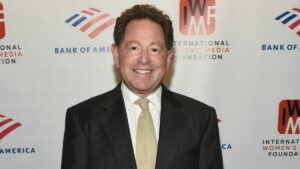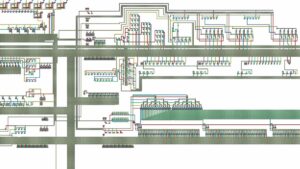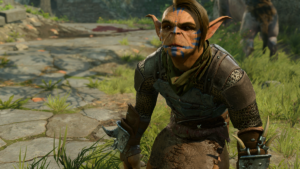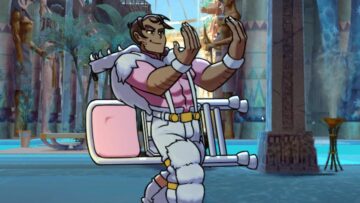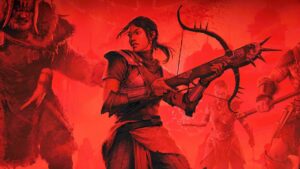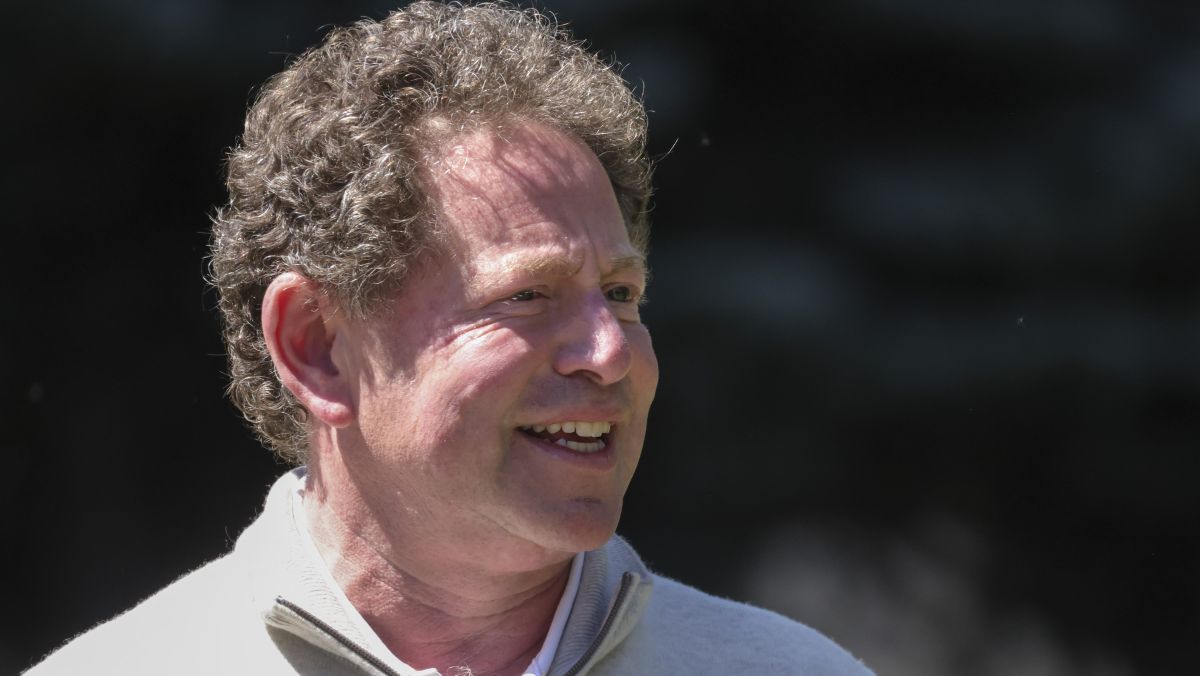
In a new and frankly embarrassing interview with Variety, Activision Blizzard CEO Bobby Kotick said there’s actually never been a problem with “systemic” harassment at the company, and that reports of such things were mainly the result of unions trying to cause trouble.
2021 was a very bad year for Activision Blizzard. In July of that year, California’s Department of Fair Employment and Housing—now known as the Civil Rights Department—filed a lawsuit alleging widespread discrimination and sexual harassment at the company; that was followed by other investigations, the departure of numerous high-level employees, apologies, fines, multiple additional lawsuits, and significant pushback from employees, who founded the ABK Workers Alliance to help drive unionization efforts and bring about other meaningful change at the company.
Despite all of that, Activision Blizzard’s board of directors said in June 2022 that, after conducting its own internal investigation, there was no evidence of systemic gender-based misconduct at the studio. Now, Kotick is not only sticking to that story, he’s taking it a step further by pointing the finger at labor organizers.
“We’ve had every possible form of investigation done,” Kotick said. “And we did not have a systemic issue with harassment—ever. We didn’t have any of what were mischaracterizations reported in the media. But what we did have was a very aggressive labor movement working hard to try and destabilize the company.”
That’s certainly audacious, but it fits a new approach Kotick is apparently taking: He told Variety that his mistake when the allegations about widespread misconduct at Activision Blizzard first came to light was not forcefully defending the company and himself against them. “I wouldn’t be sitting here talking to you if any of what you read in the inflammatory narrative was truthful,” he said.
Ironically, Kotick also insisted that he is not “anti-union,” and in fact claimed that he’s “the only Fortune 500 CEO who’s a member of a union.” That would be SAG-AFTRA, the union representing film and television actors, journalists, and other related industry professionals, which he joined in 2011 after being cast as Oakland A’s co-owner Steve Schott in the Brad Pitt film Moneyball.
“If we have employees who want a union to represent them, and they believe that that union is going to be able to provide them with opportunities and enhancements to their work experience, I’m all for it,” Kotick said. “I have a mother who was a teacher. I have no aversion to a union. What I do have an aversion to is a union that doesn’t play by the rules.”
The record would seem to indicate otherwise. In January 2022, for instance, Activision Blizzard refused to voluntarily recognize a union formed by QA testers at Call of Duty studio Raven Software; it wasn’t until June of that year that it changed direction, not long after Microsoft—which is in negotiations to acquire Activision—said that it will not oppose the union if and when it takes over. In October 2022, the US National Labor Relations Board found that Activision Blizzard had withheld pay raises at Raven in retaliation for their roles in union organization; in January 2023, workers at Activision Blizzard studio Proletariat announced that they had dropped their request for a union vote because studio CEO Seth Sivak was “making a free and fair election impossible.”
The Communications Workers of America, the labor organization that’s been leading game industry unionization efforts, rejected Kotick’s characterization. “Corporations choose to be disruptive when they run anti-union campaigns,” CWA communications director Beth Allen told Variety. “Workers who join together to improve their workplaces intend to make constructive changes for the benefit of all. When employers voluntarily recognize unions and engage in good faith contract bargaining, it builds trust and strengthens companies.”
Activision Blizzard has also previously acknowledged that misconduct at the company is in fact a problem. In March 2022, for instance, it paid $18 million to settle a sexual harassment lawsuit filed against it by the Equal Employment Opportunity Commission. Other lawsuits remain in motion, but Activision Blizzard has begun pushing back on that front too. In December 2022, it filed a lawsuit against California’s CRD alleging that the agency had moved improperly slowly with the case and withheld information regarding its contact with media and unions.
In late 2021, PC Gamer spoke to three ex-Blizzard employees whose stories also disagree with Kotick’s claims: They said among other things that inappropriate workplace behaviour, fuelled in part by an out-of-control drinking culture, was excused by management, and that women in their departments struggled to receive the same recognition as men.
Kotick also touched on Microsoft’s in-the-works acquisition of Activision Blizzard, saying that “Microsoft is by far the best place for us to be” and that the deal makes particularly good sense in light of the rising cost of game development, especially “compensation for talent.” But he added that the company will probably be okay if the acquisition is ultimately blocked: Activision Blizzard is currently sitting on roughly $12.6 billion in cash, and will gain another $3 billion on top of that from Microsoft as a penalty if the deal falls through.
- SEO Powered Content & PR Distribution. Get Amplified Today.
- PlatoAiStream. Web3 Data Intelligence. Knowledge Amplified. Access Here.
- Minting the Future w Adryenn Ashley. Access Here.
- Buy and Sell Shares in PRE-IPO Companies with PREIPO®. Access Here.
- Source: https://www.pcgamer.com/activision-blizzard-ceo-audaciously-claims-that-sexism-and-harassment-problems-were-made-up-by-an-aggressive-labor-movement-trying-to-destabilize-the-company
- :has
- :is
- :not
- $3
- $UP
- 2011
- 2021
- 2022
- 2023
- 500
- a
- Able
- About
- acknowledged
- acquire
- acquisition
- Activision
- Activision Blizzard
- actors
- actually
- added
- Additional
- After
- against
- agency
- aggressive
- All
- Allegations
- also
- america
- among
- an
- and
- announced
- Another
- any
- approach
- AS
- At
- audacious
- aversion
- Axios
- back
- Bad
- BE
- because
- been
- begun
- being
- believe
- benefit
- BEST
- Billion
- blizzard
- blocked
- board
- board of directors
- Bobby
- brad
- bring
- builds
- but
- by
- california
- call
- Call of
- Call of Duty
- came
- Campaigns
- case
- Cash
- Cause
- ceo
- certainly
- change
- Changes
- Choose
- Civil Rights
- claimed
- claims
- Cms
- commission
- Communications
- Companies
- company
- Compensation
- conducting
- constructive
- contact
- contract
- Corporations
- Cost
- Culture
- Currently
- deal
- December
- Defending
- Department
- departments
- Development
- DID
- Director
- Directors
- Discrimination
- disruptive
- do
- done
- drive
- dropped
- efforts
- Election
- employees
- employers
- employment
- engage
- enhancements
- equal
- especially
- Ether (ETH)
- Every
- evidence
- experience
- fact
- fair
- faith
- Falls
- far
- Film
- fines
- finger
- First
- followed
- For
- form
- formed
- Fortune
- found
- Founded
- from
- front
- further
- Gain
- game
- game-development
- going
- good
- had
- harassment
- Hard
- Have
- he
- help
- here
- high-level
- his
- HTTPS
- i
- if
- improve
- in
- indicate
- industry
- information
- instance
- intend
- internal
- Interview
- investigation
- Investigations
- issue
- IT
- ITS
- January
- join
- joined
- Journalists
- jpg
- July
- june
- known
- labor
- Late
- lawsuit
- Lawsuits
- leading
- light
- Long
- made
- mainly
- make
- MAKES
- Making
- management
- March
- meaningful
- Media
- member
- Men
- Microsoft
- million
- mistake
- mother
- motion
- movement
- multiple
- NARRATIVE
- National
- negotiations
- never
- New
- no
- now
- numerous
- Oakland
- october
- of
- Okay
- on
- only
- opportunities
- Opportunity
- oppose
- organization
- organizers
- Other
- otherwise
- over
- own
- paid
- part
- particularly
- Pay
- PC
- PC Gamer
- Place
- plato
- Plato Data Intelligence
- PlatoData
- Play
- possible
- previously
- probably
- Problem
- problems
- professionals
- provide
- Pushing
- Q&A
- Read
- receive
- recognition
- recognize
- record
- regarding
- related
- relations
- remain
- Reported
- Reports
- represent
- representing
- request
- result
- rights
- rising
- roles
- roughly
- rules
- Run
- s
- Said
- same
- saying
- seasonal
- seem
- sense
- Sexual
- Sexual Harassment
- significant
- Sitting
- Slowly
- Software
- Step
- Steve
- sticking
- Stories
- Story
- Strengthens
- studio
- such
- systemic
- takes
- taking
- Talent
- talking
- teacher
- television
- testers
- that
- The
- their
- Them
- There.
- they
- things
- three
- Through
- to
- together
- too
- top
- touched
- trouble
- Trust
- try
- Ultimately
- union
- Unions
- until
- us
- variety
- Ve
- very
- voluntarily
- Vote
- want
- was
- wasn
- we
- were
- What
- when
- which
- WHO
- whose
- widespread
- will
- with
- Women
- Work
- workers
- working
- Workplace
- would
- year
- you
- youtube
- zephyrnet

